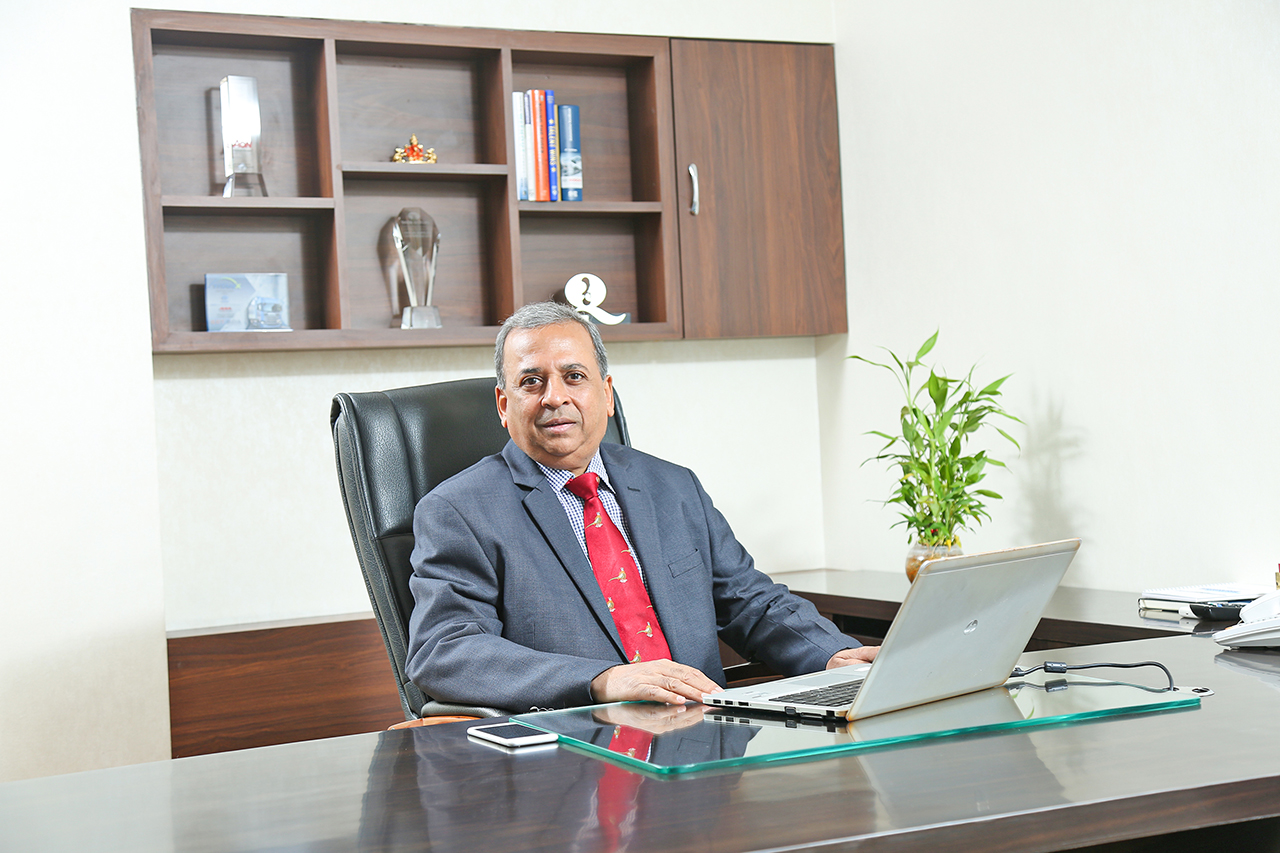BS-VI Transition Experience
The industry transitioned to BS-VI from April 1, 2020. However, most OEMs had begun developing solutions for BS-VI almost a couple of years earlier. With the BS-VI transition, the engine heat rejection had significantly gone up and there was a need to improve the charge air to reduce emissions. Most of the OEMs, especially CV makers, had used this opportunity to overhaul their product line and launch new products. This meant there was a need to develop 100+ BS-VI compliant product solutions to be developed within a span of 1-1.5 years. At Tata Autocomp, the main product line getting impacted was the engine cooling solution. The key demand from OEMs was to develop solutions which are cost neutral while being efficient in terms of thermal performance, size and weight.

To address this, we developed a new generationiSMART (slim and advanced radiator technology for India) that was lighter in weight and had a higher cooling efficiency. We also developed other products such as low pressure drop charge air cooler, slim condensers, new generation compact header-less EGR coolers and efficient fan-motor assemblies. These product technology implementations needed lot of efforts in design, process and manufacturing. We accomplished this through setting up of new manufacturing and product test equipment.
While the basic technology was developed, there was a lot of application engineering required for each OEM and the various models and platforms in each OEM. This meant a lot of investment in engineering resources, tooling, vendor development and supply chain and subsequent pressures to manufacture and deliver the products in time. We ensured that we were ready with specific product solutions for each and every customer well within time through a closely monitored program management structure involving cross-functional teams. We could validate those products adequately before launch and meet their SOP requirements.
Challenges
The main challenges that sprung up during the BS-VI transition are described above. However, the key challenges are summarised as below.
1. Higher performance demand with constantly changing specifications on account of simultaneous new engine and vehicle platform developments.
2. Lesser time of development – 1-1.5 years as against 4-5 years in BS-III and BS-IV migration.
3. No or negative cost impact demanded by OEMs.
4. Supply chain and supplier base to cater for new technology products.
These were overcome with concurrent engineering with OEMs, development new technology products, optimum utilisation of resources and CFT approach. However, constraint on supply chain and commodity cost rise continues to be a challenge and is being overcome with localisation and VAVE.
Opportunities
Since BS-VI required a significant reduction in emissions and highly efficient product solutions, a technology focussed supplier like Tata Autocomp got more opportunities to enhance their presence at the customer end and increase their share of wallet. Apart from engine thermal management, we also identified other light-weighting opportunities across other components that we supplied. For example, thin wall plastics, sheet moulded composites, seating systems, low power consuming HVAC solutions and emission treatment solutions. In general, BS-VI transition helped the automotive component industry players with access to the latest technology to enhance their presence in the market.
Current and Upcoming Financial Year
Due to transition to BS-VI and the onset of pandemic, there was a slowdown in the first half of FY20-21 and thus it was challenge for our industry. With recovery in the second half of FY20-21, the outlook for FY 21-22 seems to be promising. Apart from BS-VI and new platforms, EV is a major growth driver for Tata AutoComp and we are the first to offer complete solutions to the emerging EV segment across all verticals of the automotive industry. Our portfolio now includes Li-Ion battery pack, battery management system, battery and motor thermal management solutions, on board chargers, motors, controllers and integrated drivetrains, e-compressors and chargers. Besides, we have also invested in offering cutting-edge technology in safety, comfort and electronics. We believe that EV will be a major growth driver for the industry and for Tata Autocomp. Apart from this, the new CAFÉ norms and Trem-4 and CPCB4 norms for the tractor and genset segment being made applicable from FY22-23 will also accelerate the growth of new product solutions for the component industry, including Tata Autocomp.